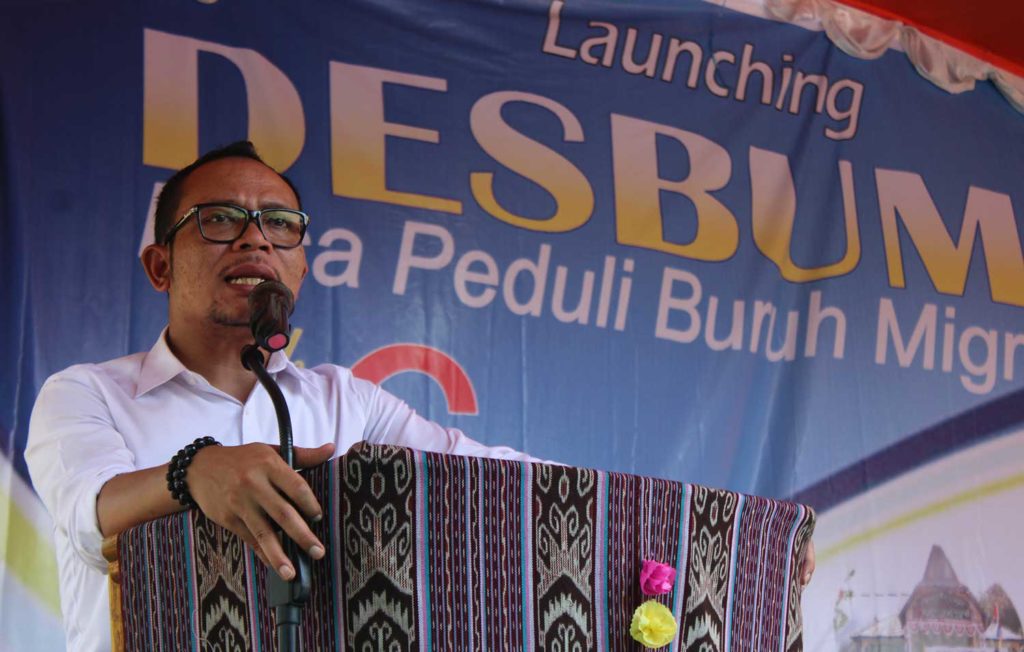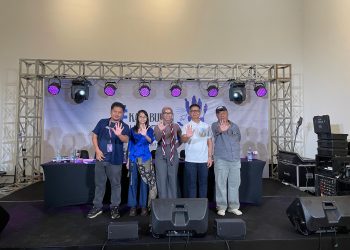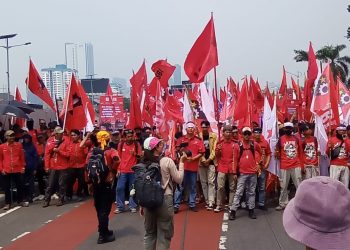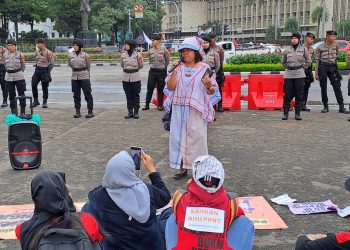At the 28th ASEAN Summit in Vientiane, Laos, last Tuesday, September 6, President Joko Widodo reminded ASEAN countries to protect the rights of migrant workers. Not only the workers, but also their families.
“ASEAN must ensure that the rights of workers and their families are well protected,” said one of President Jokowi’s speeches.
This speech shows how strongly Indonesia is committed to protecting the rights of migrant workers. This issue was as important as the commitment to maintaining political stability, security and economic growth in the region which the president also conveyed at the occasion.
Indonesia’s commitment is not only based on subjective interests, that this country has more than 6 million migrant workers, some of whom work in several ASEAN countries. More than that, the defense of migrant workers is also based on sincerity in upholding the principles of human rights. Indeed, the high number of migrant workers and the complexity of the problems that surround them, has left a bad story for Indonesian migrant workers. However, the state is strongly committed to always being there to provide protection. Not only to workers, but also to their families.
President Jokowi’s invitation was actually a response to the weak commitment of some ASEAN countries, especially countries receiving migrant workers such as Malaysia, Singapore and Brunei Darussalam, in protecting the existence of migrant workers.
The weak commitment of some ASEAN countries was clearly evident at a meeting at the level of senior officials of the Ministry of Manpower of ASEAN countries in Jakarta, when discussing the finalization of the draft protection and promotion of migrant workers. In the meeting which took place a week before the ASEAN Summit, Indonesia’s attitude and position was very clear, that efforts to protect migrant workers must be legally binding for all ASEAN members. Not only for migrant workers, but also for families and migrant workers who are undocumented (problematic in documents).
Undocumented migrant workers are not interpreted as illegal workers, but migrant workers whose initial process is legal, but on the way experience document problems. For example, the work contract expires but the employer is extended by ‘kinship’. Or workers whose residence permits expire, but the company makes it difficult to update documents.
By making it legally binding, migrant workers have the same rights and legal treatment as the citizens of the country where they work. Thus, there are no more stories of police not processing complaints or not providing legal protection to migrant workers. Because he has legal protection rights that are equal to local citizens.
The assertion that Indonesia’s stance is based on human rights values and the previous ASEAN agreement documents. However, Indonesia’s stance was met with stiff opposition from Malaysia, Singapore, Brunei and Laos. Hopefully President Jokowi’s warning will receive a positive response from the ASEAN leaders.
Indonesia’s attitude in protecting and improving the welfare of migrant workers was also conveyed at the Colombo Process forum in Sri Lanka at the end of last August. In the regional consultation forum of the ministers of labor-sending countries in Asia, Indonesia proposed two important things: the need to build a network in building a labor market information system, as well as a labor inspector network.
The labor market information network will make it easier for migrant workers to obtain labor market information such as skills needed, companies where they work, employment contracts, rights to be obtained and so on. Meanwhile, the worker inspection network will make it easier to supervise and advocate for migrant workers.
The two Indonesian proposals complement the discussion on the agenda agreed upon by the forum, including skills and qualification recognition, promoting ethical recruitment, pre-departure orientation and empowerment, and remittances.
Of course, this commitment is not limited to only “campaigns” in international forums. Domestically, efforts to protect migrant workers continue to be carried out by urging the Draft Law on the Protection of Indonesian Migrant Workers (RUU PPMI) as a complement to Law Number 39 of 2004 concerning the Placement and Protection of Indonesian Workers Abroad. The PPMI Bill is believed to be able to guarantee the fulfillment of the rights of migrant workers better.
Apart from regulations, the government also strives to protect and improve the welfare of migrant workers from their hometowns. At the end of last August, I inaugurated six villages in Lembata District, East Nusa Tenggara as Migrant Workers Care Villages (Desbumi). The six villages are Tagawiti, Beutaran, Dulitukan in Ili Ape District, as well as Lamatokan, Lamawolo and Bao Lali Duli Villages in East Iliape District. This program was initiated by Migrant Care, the Health Foundation for All (YKS), MAMPU (Maju Perempuan Indonesia for Poverty Reduction), and the local government.
Previously, Desbumi was also launched in Central Lombok, NTB (6 villages), Wonosobo, Central Java (10 villages), Kebumen, Central Java (2 villages), Cilacap Central Java (1 village), Jember East Java (2 villages), and Banyuwangi East Java. (6 villages).
Desbumi has a protection scheme and improves the welfare of migrant workers and their families. Several conditions that must be met by a village that cares for migrant workers, among others, have a Village Regulation on migrant workers, have migrant worker data, an internet-based migrant worker information system, information on complaints and resolutions, provide paralegals, document services for prospective migrant workers, community empowerment programs and remittance training.
Desbumi also has a referral system scheme if any of its citizens experience problems in the country where they work. There is also a rehabilitation scheme for migrant workers who are stuck in problems. The existence of Desbumi is a protective fence for villagers from brokering and human trafficking syndicates.
In essence, the government will continue to be present in efforts to protect and improve the welfare of migrant workers and their families.
Jakarta, 9 September 2016
*) M Hanif Dhakiri, Minister of Labour of the Republic of Indonesia
source: detik.com
sumber: detik.com










